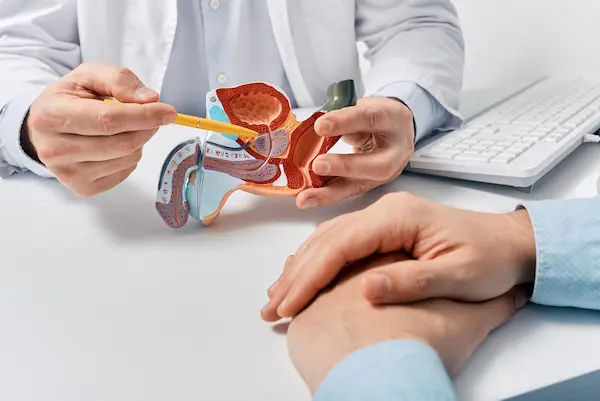Lifestyle Change for Health Issues
know about the lifestyle change for health issues, why it matters, key lifestyle changes and important tests to consider and more.


Introduction
Living with health issues can be challenging, but small changes in your daily routine can make a big difference. Whether you're dealing with diabetes, heart disease, obesity, or stress-related conditions, adopting a healthier lifestyle can help manage symptoms, improve your well-being, and even prevent complications.
This article will guide you through simple yet effective lifestyle modifications that can support your health journey.
Why Lifestyle Changes Matter
Many health problems, like high blood pressure, diabetes, and heart disease, are linked to our daily habits. Poor diet, lack of exercise, stress, and inadequate sleep can worsen these conditions. On the other hand, making positive changes can:
- Improve energy levels
- Reduce medication dependency
- Lower the risk of complications
- Enhance mental well-being
You don’t need drastic changes; small, consistent steps can lead to long-term benefits.
Consult General Practitioner for Personalised Advice
Key Lifestyle Changes for Better Health
1. Eat a Balanced Diet
What you eat directly impacts your health. A nutritious diet helps control weight, blood sugar, and cholesterol levels.
Tips for a healthier diet:
- Include more whole foods: Fruits, vegetables, whole grains, lean proteins (chicken, fish, beans), and healthy fats (nuts, olive oil).
- Reduce processed foods: Avoid sugary snacks, fried foods, and packaged meals high in salt and preservatives.
- Control portion sizes: Eating smaller, frequent meals helps digestion and prevents overeating.
- Stay hydrated: Drink plenty of water and limit sugary drinks and excessive caffeine.
- If you have specific conditions like diabetes or hypertension, consult a nutritionist for a personalised diet plan.
2. Stay Physically Active
Regular exercise helps maintain a healthy weight, strengthens the heart, and improves mood.
Simple ways to stay active:
- Walk daily: Aim for at least 30 minutes of brisk walking.
- Try strength training: Light weights or bodyweight exercises (like squats and push-ups) help build muscle.
- Yoga or stretching: Improves flexibility and reduces stress.
- Find activities you enjoy: Dancing, swimming, or cycling can make exercise fun.
- If you have joint pain or heart issues, consult a doctor before starting a new exercise routine.
3. Manage Stress
- Chronic stress can lead to high blood pressure, anxiety, and digestive problems.
Ways to reduce stress:
- Practice deep breathing or meditation: Just 5-10 minutes daily can help calm your mind.
- Get enough sleep: Aim for 7-8 hours of quality sleep.
- Stay socially connected: Talking to friends or family can relieve stress.
- Take breaks: If work is stressful, take short breaks to relax.
4. Quit Smoking and Limit Alcohol
Smoking and excessive alcohol consumption increase the risk of heart disease, lung problems, and liver damage.
How to cut back:
- Seek support: Join a quit-smoking program or talk to a doctor for help.
- Reduce alcohol gradually: If you drink, limit it to moderate levels (1 drink per day for women, 2 for men).
5. Get Regular Health Check-ups
Prevention is better than cure. Regular screenings help detect problems early.
- Important tests to consider:
It includes:
- Blood pressure checks
- Blood sugar (for diabetes)
- Cholesterol levels
- Annual full-body check-ups
- Making Changes Stick
Changing habits can be tough, but these tips can help:
- Start small: Focus on one change at a time (e.g., adding more veggies to meals before cutting out junk food).
- Set realistic goals: Instead of "I’ll exercise daily," try "I’ll walk 3 times a week."
- Track progress: Use a journal or app to monitor your diet, exercise, and mood.
- Reward yourself: Celebrate small wins to stay motivated.
When to Seek Professional Help?
If lifestyle changes aren’t enough to manage your condition, consult a doctor. Specialists can provide:
- Personalised diet plans
- Exercise recommendations
- Medication adjustments if needed
Final Thoughts
Your health is in your hands. Simple lifestyle changes eating better, moving more, managing stress, and avoiding harmful habits, can significantly improve your quality of life. Remember, progress takes time, so be patient with yourself.
Consult General Practitioner for Personalised Advice
Consult General Practitioner for Personalised Advice

Dr Suseela
General Physician
5 Years • MBBS
Bengaluru
Apollo Medical Center, Marathahalli, Bengaluru

Dr. Avinash Pasuparthy
General Practitioner
5 Years • MBBS
Visakhapatnam
Apollo Clinic Vizag, Visakhapatnam

Dr. Riti Srivastava
General Practitioner
12 Years • MD (Physician)
Gautam Buddha Nagar
Shri Krishna Clinic, Gautam Buddha Nagar

Dr. Abhirup Chakrabarti
General Practitioner
10 Years • MBBS
Chennai
Dr Abhirup Chakrabarti, Chennai

Dr. Ritesh Motghare
General Practitioner
18 Years • MBBS PGCDM
Nagpur
HEALTH CENTRE VNIT NAGPUR, Nagpur
Consult General Practitioner for Personalised Advice

Dr Suseela
General Physician
5 Years • MBBS
Bengaluru
Apollo Medical Center, Marathahalli, Bengaluru

Dr. Avinash Pasuparthy
General Practitioner
5 Years • MBBS
Visakhapatnam
Apollo Clinic Vizag, Visakhapatnam

Dr. Riti Srivastava
General Practitioner
12 Years • MD (Physician)
Gautam Buddha Nagar
Shri Krishna Clinic, Gautam Buddha Nagar

Dr. Abhirup Chakrabarti
General Practitioner
10 Years • MBBS
Chennai
Dr Abhirup Chakrabarti, Chennai

Dr. Ritesh Motghare
General Practitioner
18 Years • MBBS PGCDM
Nagpur
HEALTH CENTRE VNIT NAGPUR, Nagpur




